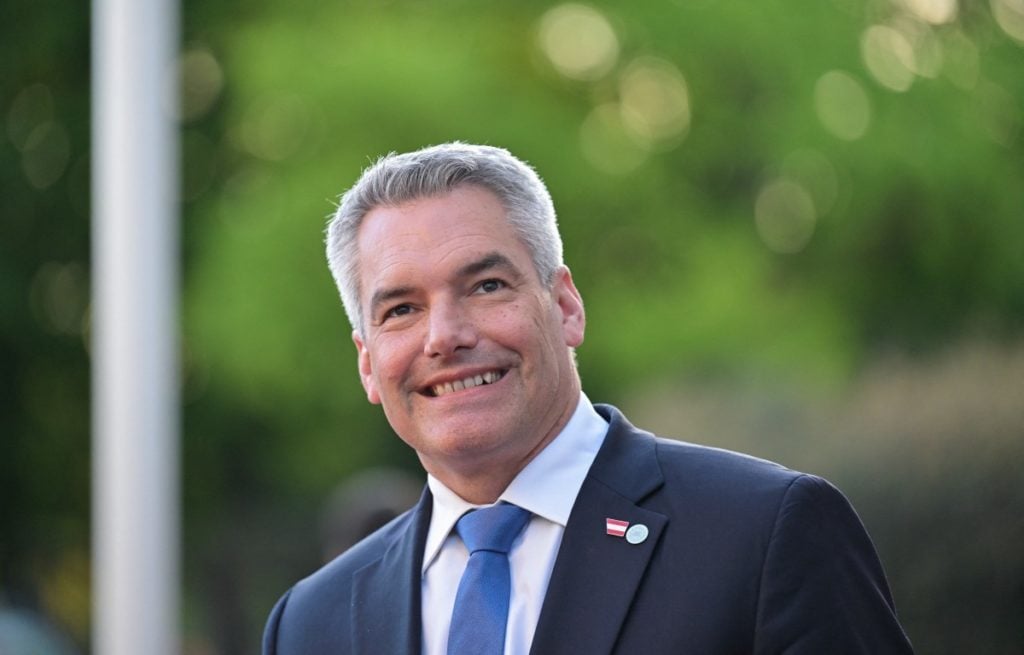Strache, a former dental technician who replaced Hilmar Kabas as the leader of the Vienna branch of the FPÖ, is poised to see the right-wing party (often associated with the colour blue in Austrian politics) which he now chairs make considerable gains in upcoming EU elections.
He was elected national party leader of the FPÖ in April 2005, when a faction of the party split away under the leadership of the late Jörg Haider to form the more moderate Alliance for the Future of Austria (BZÖ.)
He's recently been in the news with a controversial rap video, which plays on Austrians' patriotic feelings. The Local doesn't expect his chances of representing Austria in the next Eurovision Song Contest to be highly rated, regardless of his electoral success.
The Austrian Freedom Party is a natural ally of other European right wing parties, who are primarily concerned with their common grievances against Islam, immigration and ethnic minorities like the Roma.
Strache was for many years seen as a disciple and the natural successor of Haider until the split, which was likely triggered by the anticipated electoral defeat of Haider's sister.
In 2010 Strache's party received 26% of the vote in Vienna's mayoral and council elections, increasing their seats in the city council to 27. His supporters tend to be aged under 30 years.
Strache has strong links to the right-wing student fraternities known as the Burschenschaften, which seek pan-German unity and nationalism. He readily acknowledges his membership of the secretive Vandalia organization, as was quoted in 2009 by the UK's Daily Mail. ‘The Burschenschaften was founded during the wars against Napoleon Bonaparte in the beginning of the 19th century. These are the historical origins I am proud of,’ he wrote.
According to his website, his favourite film is Mel Gibson's Braveheart. In general, Strache and his party seek to embody the virtues of patriotism, traditional family values, Christianity and strong euro scepticism.




 Please whitelist us to continue reading.
Please whitelist us to continue reading.
Member comments